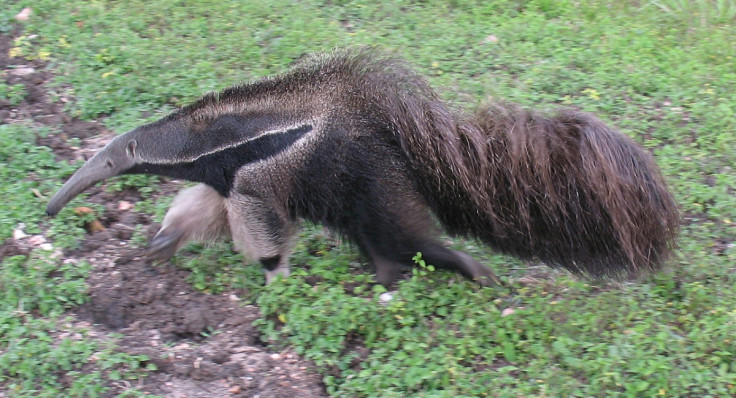Two Hunters Attacked and Killed by Giant Anteaters in Brazil

Farmers hunting in the northern Brazil were attacked and killed by giant anteaters in two separate incidents.
"Both were farmers, were hunting and attacked by wounded or cornered animals," lead author Vidal Haddad of the Botucatu School of Medicine at Sao Paulo State University told AFP.
In one incident, a 47-year-old man was out hunting with his two sons and dogs when they cornered a giant anteater in northern Brazil. The man didn't shoot the mammal, which is closely related to the sloth, but came towards it with his knife drawn.
The anteater stood on its hind legs ‒ an adult can reach a height of nearly 6ft ‒ and grabbed the man with its forelimbs. Its claws caused deep puncture wounds in his thighs and upper arms.
The hunter bled to death at the scene, according to the report, which stated that the encounter happened on 1 August 2012. However, the attack was not recounted in scientific literature until recently.
The case studies of two fatal maulings by giant anteaters were released in the journal Wilderness and Environmental Medicine, which has an online edition this month, ahead of its December print issue.
In 2010, at a separate incident, a 75-year-old man was killed when an anteater used its long front claws – normally used to help dig into anthills ‒ punctured his femoral arteries, located in the groin and thigh.
"These injuries are very serious and we have no way of knowing whether it is a defence behaviour acquired by the animals," said Haddad.
Wildlife researchers are concerned that the attacks happened because of the loss of the animals' habitat, which may cause them to defend themselves.
The mammals are not usually aggressive toward people, as their diet consists of ants and termites. When a territorial dispute occurs, they vocalise, swat, and can sometimes sit on or even ride the back of their opponents
They are considered a vulnerable species by the International Union for the Conservation of Nature (IUCN), because of deforestation and human settlements that are making inroads on their territory.
© Copyright IBTimes 2025. All rights reserved.




















